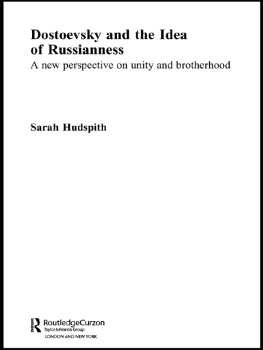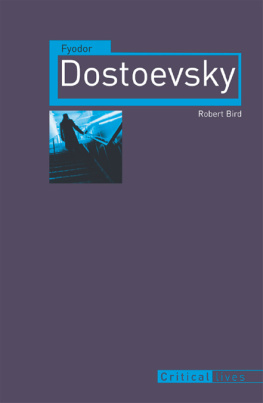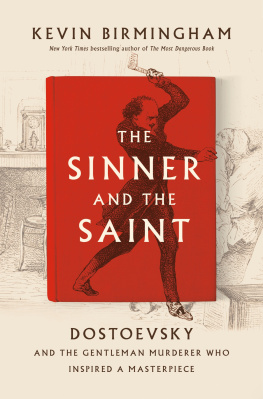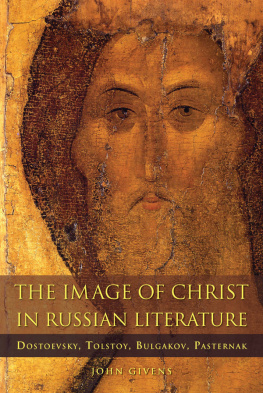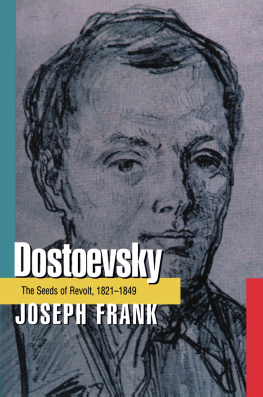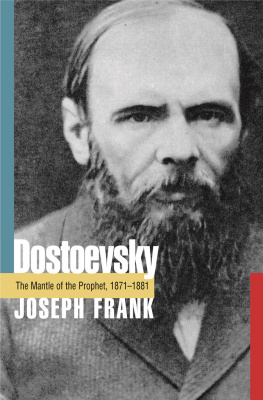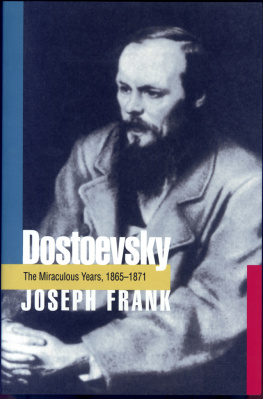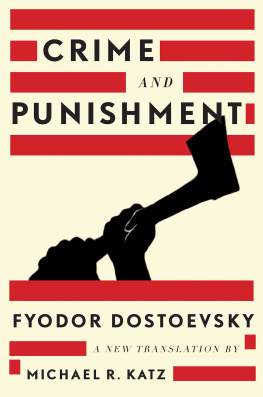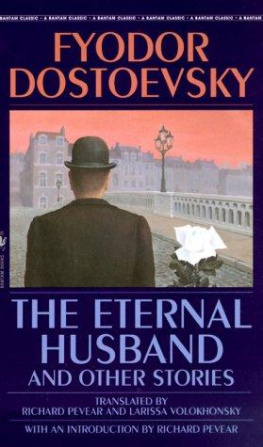Dostoevsky and the Idea of Russianness
This book examines Dostoevskys interest in, and engagement with, Slavophi-lism a Russian mid-nineteenth century movement of conservative nationalist thought. It explores Dostoevskys views, as expressed in both his non-fiction and fiction, on the religious, spiritual and moral ideas which he considered to be innately Russian. It concludes that Dostoevsky is an important successor to the Slavophiles, in that he developed their ideas in a more coherent fashion, broadening their moral and spiritual concerns into a more universal message about the true worth of Russia and her people.
Sarah Hudspithis a lecturer at the University of Leeds. Her main area of specialism is nineteenth-century Russian literature, especially Dostoevsky and Tolstoy.
BASEES/RoutledgeCurzon Series on Russian and East European Studies
Series editor: Richard Sakwa
Department of Politics and International Relations, University of Kent
Editorial Committee:
George Blazyca, Centre for Contemporary European Studies, University of Paisley
Terry Cox, Department of Government, University of Strathclyde
Rosalind Marsh, Department of European Studies and Modern Languages,University of Bath
David Moon, Department of History, University of Strathclyde
Hilary Pilkington, Centre for Russian and East European Studies, University ofBirmingham
Stephen White, Department of Politics, University of Glasgow
This series is published on behalf of BASEES (the British Association for Slavonic and East European Studies). The series comprises original, high-quality, research-level work by both new and established scholars on all aspects of Russian, Soviet, post-Soviet and East European Studies in humanities and social science subjects.
- Ukraines Foreign and Security Policy, 19912000
Roman Wolczuk
- Political Parties in the Russian Regions
Derek S. Hutcheson
- Local Communities and Post-Communist Transformation
Edited by Simon Smith
- Repression and Resistance in Communist Europe
J.C. Sharman
- Political Elites and the New Russia
Anton Steen
- Dostoevsky and the Idea of Russianness
Sarah Hudspith
Dostoevsky and the Idea of Russianness
A new perspective on unity and brotherhood
Sarah Hudspith
First published 2004 by RoutledgeCurzon
11 New Fetter Lane, London EC4P 4EE
Simultaneously published in the USA and Canada
by RoutledgeCurzon
29 West 35th Street, New York, NY 10001
RoutledgeCurzon is an imprint of the Taylor & Francis Group
This edition published in the Taylor & Francis e-Library, 2005.
To purchase your own copy of this or any of Taylor & Francis or Routledges collection of thousands of eBooks please go to www.eBookstore.tandf.co.uk
2004 Sarah Hudspith
All rights reserved. No part of this book may be reprinted or reproduced or utilized in any form or by any electronic, mechanical, or other means, now known or hereafter invented, including photocopying and recording, or in any information storage or retrieval system, without permission in writing from the publishers.
British Library Cataloguing in Publication Data
A catalogue record for this book is available from the British Library
Library of Congress Cataloging in Publication Data
A catalog record for this book has been requested
ISBN 0-203-63387-3 Master e-book ISBN
ISBN 0-203-63728-3 (Adobe eReader Format)
ISBN 0-415-30489-X (Print Edition)
Acknowledgements
This study is based largely on my thesis for the Ph.D. awarded to me by the University of Sheffield in 2000. I owe much to those who have advised and supported me in many different ways. First and foremost, I would like to thank my Ph.D. supervisor, Professor William Leatherbarrow, for being a source of inspiration, guidance, encouragement, indefatigable good humour, and praise. Next I must mention Professor Malcolm Jones, who has given me a great deal of sound advice and positive feedback. My thanks are also due to Professor Derek Offord for his advice on changes to the original thesis for publication. I must thank Natasha Bogoslavskaya for her help in checking my translations from the Russian. Finally, I am grateful to Peter Sowden at Taylor & Francis for his patience and support.
This study incorporates material that has appeared previously in a different form, in my articles Slavophilism and the opposition of Russia and the West as themes in Dostoevskys Diary of a Writer, Rossia i Zapad: Dialog Kultur, no. 5, Moscow, 1998, and Dostoevsky and the Slavophile aesthetic, Dostoevsky Studies, 4, 2000. I am grateful to the publishers for their permission to reproduce the material therein. I would also like to thank other publishers who have granted their permission for the translation into English of extracts from certain works cited.
Lastly, love and thanks to my family, and especially Stuart, who have helped me so much.
eBooks at www.eBookstore.tandf.co.uk
A library at your fingertips!
eBooks are electronic versions of printed books. You can store them on your PC/laptop or browse them online.
They have advantages for anyone needing rapid access to a wide variety of published, copyright information.
eBooks can help your research by enabling you to bookmark chapters, annotate text and use instant searches to find specific words or phrases. Several eBook files would fit on even a small laptop or PDA.
NEW:Save money by eSubscribing: cheap, online access to any eBook for as long as you need it.
Annual subscription packages
We now offer special low-cost bulk subscriptions to packages of eBooks in certain subject areas. These are available to libraries or to individuals.
For more information please contact webmaster.ebooks@tandf.co.uk
Were continually developing the eBook concept, so keep up to date by visiting the website.
www.eBookstore.tandf.co.uk
Note on editions, transliteration and translation
All references to Dostoevsky are from the thirty-volume Academy of Sciences edition of his complete works (F. M. Dostoevskii, Polnoe sobranie sochinenii v 30 tomakh, Leningrad: Nauka, 197290), and are given in parentheses in the text, citing volume and page number.
In the bibliographic references of this study, Russian is transcribed from the Cyrillic according to the Library of Congress transliteration system without diacritics. In the main body of the text, however, I have chosen to adopt a less formal system for proper names, so that for example I use Dostoevsky rather than Dostoevskii. Also, I have allowed some Anglicization of first names, such as Alexander for Aleksandr. In citations from critical works that use an alternative system, that system is kept.
Readers unfamiliar with Cyrillic alphabet may note the use of the prime () in certain proper names and Russian terms. This represents the Cyrillic soft sign, which softens the pronunciation of the preceding consonant.
Titles of works by Dostoevsky, Khomiakov and Kireevsky are translated in the main body of the text, but transliterated in the bibliography and notes. Titles of Russian journals, with the exception of Dostoevskys Diary of a Writer, are transliterated rather than translated.

